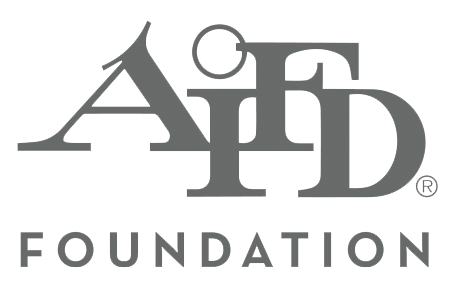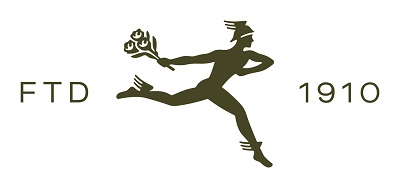Course Descriptions
*Please be advised that there is a textbook required for the online courses, “The AIFD® Guide to Floral Design: Terms, Techniques, and Traditions (3rd edition)” It is available online, click here to order. Please allow time for shipping before the class begins.
Online Course Cost
The cost to enroll in each online course is $79 for AIFD® members and AIFD® Friends and $99 for others.
Online Course Time Estimates
Time in minutes
| Course | Video Run Time* | Text Review & Slide Show Time* | Discussion Board, Assignments & Exam Time* | Exam Study Time* | Total Estimated Time |
| Intro to Floral Design | 15-20 | 30-60 | 40-60 | 60-90 | 145-230 |
| Element & Principles of Design | 25-35 | 60-90 | 40-60 | 60-90 | 185-275 |
| Design Techniques and Applications | 45-60 | 60-90 | 40-60 | 90-120 | 235-330 |
| Arrangements: Everyday & Sympathy | 40-50 | 60-90 | 40-60 | 60-90 | 200-290 |
| Personal Flowers: To Wear or Carry | 46-60 | 60-90 | 40-60 | 60-90 | 205-300 |
*All “times” are estimates and will vary with experience and skill level
Introduction to Floral Design
(Online Course 1)
Objectives for the Introduction to Floral Design Course
This course is designed to acquaint the student with basic information about the floral industry, including:
1. Origins from a historical perspective
2. Basic floristry tools, supplies and mechanics
3. Identification of commonly used cut flowers/foliage and plants
4. Overview of the American Institute of Floral Designers (AIFD®)
It is important to review all the provided materials, as many of the other AIFD® online courses and workshops build upon the information provided in this course.
After completing this course, the student should be able to:
1. Recall major historical periods that influenced the development of the art of floral design.
2. Recall the proper procedure for use of floral foam and basic container set-up (mechanics).
3. List the steps to membership in the American Institute of Floral Designers.
4. List the basic supplies and tools needed for proper creation of professional floral designs.
5. Recall the names (common or botanical) of the provided list of commonly used cut flowers and foliage.
Time frame for the Introduction to Floral Design: est. 145-230 minutes
Elements and Principles of Design
(Online Course 2)
Objectives for the Elements and Principles of Design Course
This course is designed to acquaint the student with the elements and principles of design. The elements of design include line, color, form, space, pattern, fragrance, size and texture. The principles of design include balance, dominance, rhythm, proportion, contrast, harmony and unity. The material presented in this course will help the student develop sensitivity for design and its uses as a positive environmental element. Mastering the elements and principles of design provides limitless possibilities for creating pleasing floral designs.
After completing this course, the student will be able to:
1. Analyze and critique floral designs in order to question his/her aesthetic, as well as conceptual, value system as it relates to the elements and principles of design.
2. Understand the elements that are the directly observable components, ingredients, and physical characteristics of a design.
3. Understand the principles, the fundamental guidelines to aesthetic design that govern the organization of the elements and materials in accordance with the laws of nature.
4. Recognize how the elements and principles work together to create a pleasing design.
Time frame for the Elements and Principles of Design Course: est. 185-275 minutes
Design Techniques and Applications
(Online Course 3)
Objectives for the Design Techniques and Applications Course
This course is designed to illustrate and define the terms and processes related to the “nuts and bolts” of assembling a flower arrangement. Combined with the elements and principles of design, these techniques and processes will help floral designers better understand the practical applications involved in creating a successful floral design.
After completing this course, the student will be able to:
1. Recall the basic categories of Design Techniques and Applications
• Basing
• Accent
• Stem Placement
• Physical Application
• Color Enhancing
• Mechanical
2. Identify how specific design techniques are used in professional floral designs
3. Justify the use of a design technique in a floral composition
Time frame for the Design Techniques and Applications Course: est. 235-330 minutes
Arrangements: Everyday and Sympathy
(Online Course 4)
Objectives for the Arrangements: Everyday and Sympathy Course
It is designed to acquaint the student with basic information about floral designs commonly used in retail floristry, including sympathy designs, centerpieces, vase arrangements and geometric designs. Specific emphasis will be placed on the process of design assembly, proper use of elements and principles of design and the proper use of mechanics when creating a floral design.
After completing this course, the student should be able to:
1. Identify the different types of mechanical products available for sympathy designs.
2. Identify & define the different types of casket pieces.
3. Identify & define the different types of set pieces and novelty designs.
4. Identify & define create the different types of sprays.
5. Identify & define and the different types of baskets and mache designs.
Time frame for the Design Techniques and Applications Course: est. 200-290 minutes
Personal Flowers: To Wear and Carry (Online Course 5)
Objectives for the Personal Flowers: To Wear and Carry Course
It is designed to acquaint the student with personal flowers, such as corsages, boutonnieres, bridal and attendant bouquets. The use of ribbons and bows will be explained in detail. Specific emphasis will be placed on the process of design assembly, proper use of elements and principles of design and the proper use of mechanics when creating a floral design. It also covers the following categories:
1. Care and Handling of personal flowers
2. Mechanics and Techniques of personal flowers
3. Flowers to Wear
4. Ribbons and Bows
5. Wedding Bouquet
Time frame for the Design Techniques and Applications Course: est. 205-300 minutes
HANDS-ON WORKSHOPS
These workshops can assist anyone in the preparation process of taking the Professional Floral Design Evaluation (PFDE) or for general design skill improvement. However, AIFD® recommends that participants take the online portion of these classes in addition to actual hands-on floral workshops. One great source for hands-on workshops are AIFD’s Education Partners.























